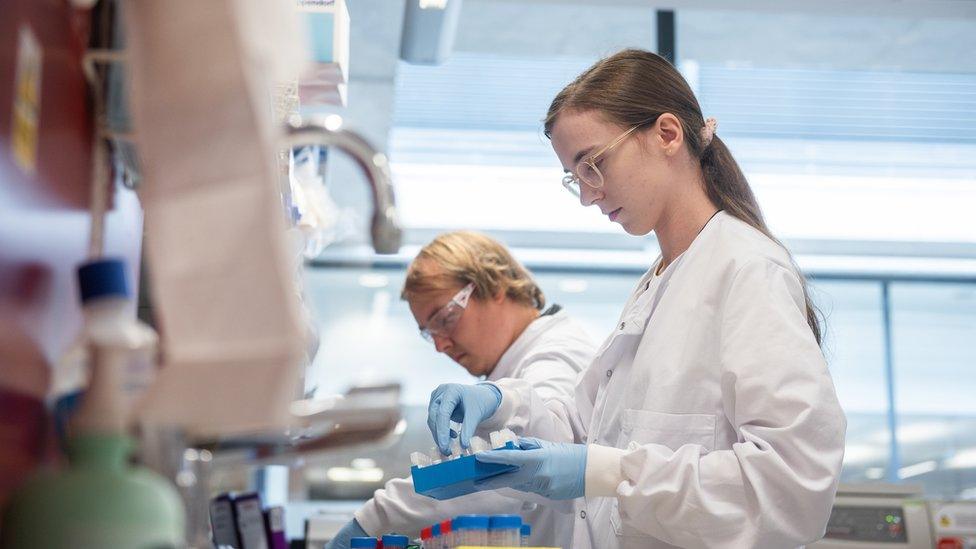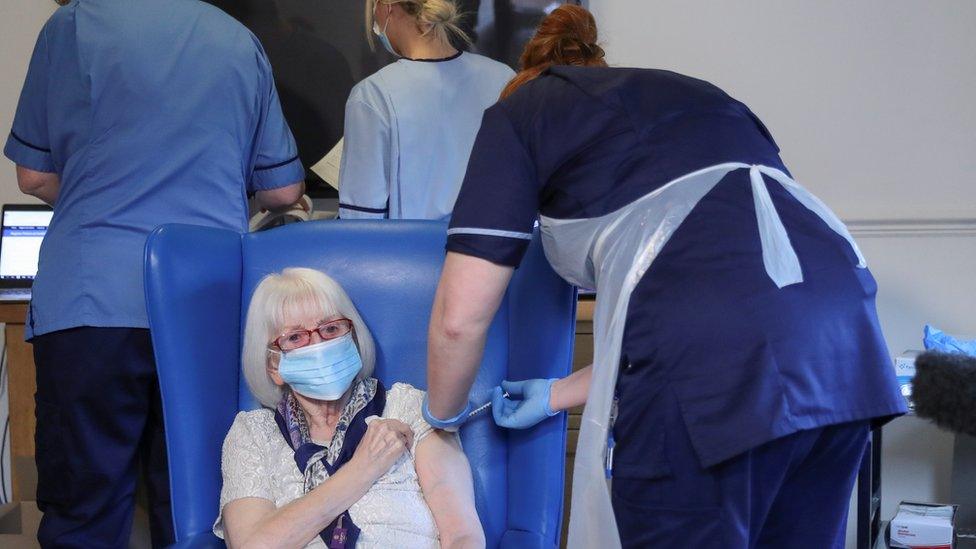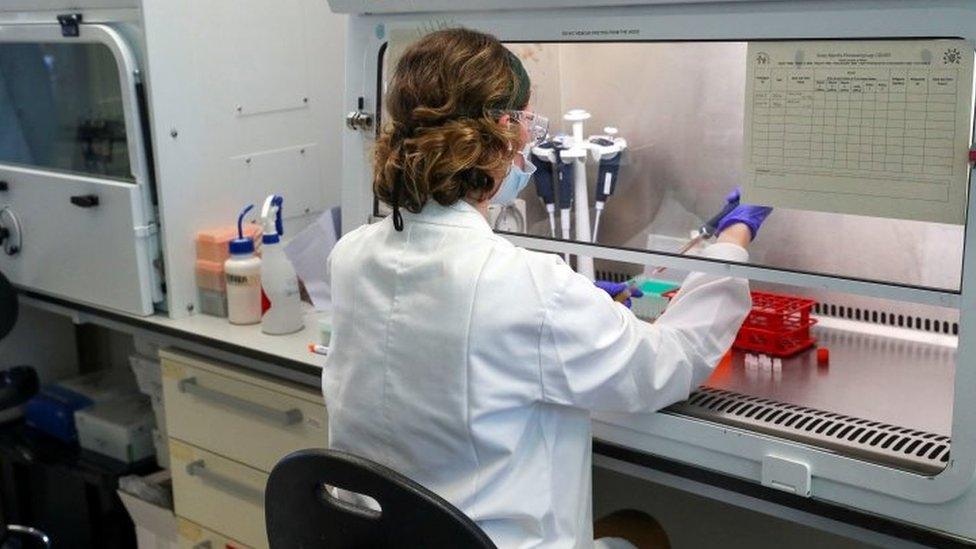Covid in Scotland: Oxford vaccine rollout begins 4 January
- Published

The Oxford/AstraZeneca vaccine has now been approved by UK regulators
The first doses of the Oxford-AstraZeneca Covid vaccine will be administered on Monday 4 January, Nicola Sturgeon has confirmed.
The vaccine is the second the UK has approved after the Pfizer/BioNTech jab.
It will be given in two full doses, with the second being between four and 12 weeks after the first.
Scotland's first minister said the extended time between doses meant more people could receive their first dose faster.
Ms Sturgeon told Holyrood the approval of the Oxford vaccine was "extremely good news" because it was "logistically easier to deliver" and because the UK had secured more doses.
The Medicines and Healthcare products Regulatory Agency (MHRA) authorised the AstraZeneca (Oxford) vaccine for deployment across the UK.
It said the vaccine should be administered in two doses, with the second between four and 12 weeks after the first.
New advice also said the second dose of the Pfizer/BioNTech vaccine may be given between three to 12 weeks following the first.
Previously it was three weeks.
The first minister said the new advice would mean that vaccinators could "now prioritise providing a first dose to as many people as possible rather than providing the required two doses in the shorter time".
Ms Sturgeon said this meant "more people will get their first dose of a Covid vaccine much sooner than originally anticipated".
As of Sunday, more than 92,000 had already received their first shot of the Pfizer vaccine, she said.
Enough doses of the Oxford and Pfizer vaccines have been ordered to offer every adult in the UK immunisation.
The UK has ordered 100 million doses of the Oxford vaccine, which will be enough to vaccinate 50 million people.
Scotland will get 8.2% of the overall number of doses, in line with its share of the UK population.
Freeman: "We're on track to vaccinate all over 50s by Spring"
At Holyrood, Scottish Conservative leader at Holyrood Ruth Davidson asked Ms Sturgeon when a list of mass vaccination venue will be published.
Ms Davidson said: "It is imperative for the Scottish government to explain what progress is being made in securing large-scale venues for mass vaccination.
"Even more important is the need for enough staff in every area to ensure these vaccines reach as many people as efficiently as possible."
She said the first minister's answers lacked any meaningful detail.
Earlier, Health Secretary Jeane Freeman said that for the initial period after 4 January the injections would be given in a supervised setting near hospitals.
After that, the jabs will take place in GP surgeries as well as community vaccination hubs.
Plans to have everyone over 50, and those under 50 with certain health conditions, vaccinated by the spring were "on track" now that the Oxford vaccine had been approved, the health secretary said.
Ms Freeman said: "We will [vaccinate] as fast as supplies come through to us."
She added that the vaccine would be prioritised for the oldest age groups, as they were most at risk of serious illness or death if they contracted coronavirus.
That meant the over 80s would be the first group to receive their injections.
Planning was under way to offer the vaccine as close to home as possible, and, in some instances, the minister said, they would be vaccinated at home.

Ms Freeman said that vaccinators delivering the Pfizer jab would also "crack on" with administering it in care homes.
'Difficult winter weeks'
Medical staff will be pulled from various roles across the Scottish health service to support the roll out of the newly-approved Oxford vaccine. The delivery programme will see injections taking place, not only during daily clinics, but at weekends and evenings.
The Oxford/AstraZeneca vaccine has been developed at a pace that would have been unthinkable before the pandemic. It was designed in the first months of 2020, tested on the first volunteer in April, and has since been through large-scale clinical trials involving thousands of people.
It will lead to a significant increase in vaccination as it is cheap and easy to mass produce.
Crucially it can be stored in a standard fridge - unlike the Pfizer-BioNTech jab which needs ultra cold storage at -70C - so it will be far easier to get the Oxford vaccine to care homes and GP surgeries.
Priority groups for immunisation - including the elderly, care home residents and health and care workers - have already been identified.
- Published30 December 2020
